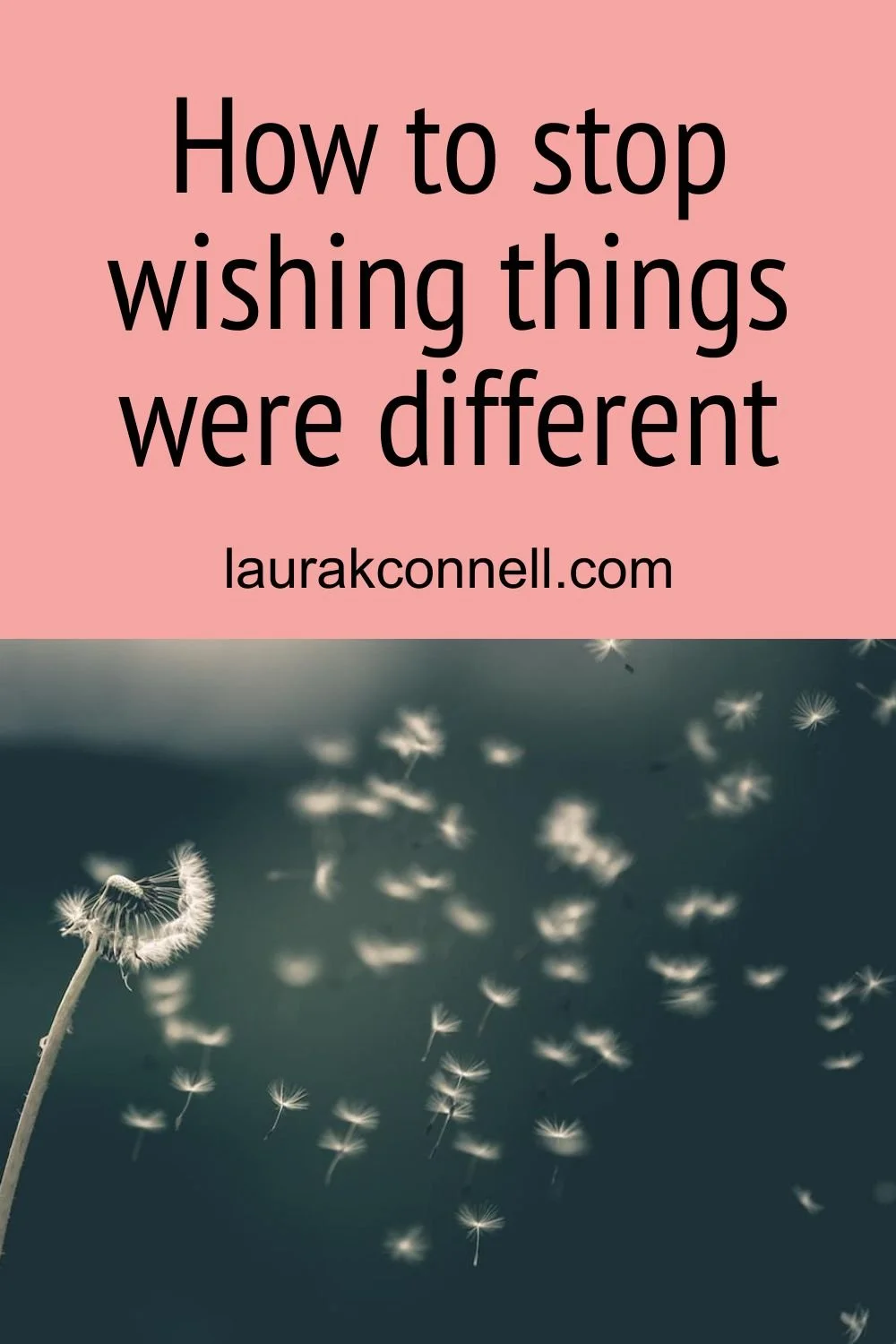How to stop wishing things were different to be happy
Photo by Saad Chaudhry on Unsplash
Oprah Winfrey says forgiveness means “giving up the hope that the past could be any different.” We hold ourselves back when we keep wishing things were different, either now or in the past.
I'm ambivalent about forgiveness and question whether it's necessary to heal. That's why I like this definition of the act.
Instead of letting people off the hook, forgiveness can mean accepting their limitations. You can stay away from someone and still forgive them. In fact, It would be foolish to allow them back into your life when they've proven they will only harm you.
That means you can maintain the no contact rule while accepting you cannot rewrite the past. Wishing things were different will only frustrate your attempts to move forward with your life.
How to stop wishing things were different
Practicing mindfulness helps you maintain present moment awareness instead of dwelling on the past. It will instill in you the new core belief that the past is over and the future unwritten.
I've noticed a lot of my unhappiness has come from wishing things were different. Simply paying attention to my breath has brought so much peace, relief and transformation I can scarcely believe it.
So much of my pain came from the fantasy that one day other people would change and understand me. When I learned to turn my gaze toward myself instead of family members (who had shown me how much they disliked and disrespected me), everything changed.
Mindfulness helps you turn this gaze within and become focused on something as simple as your breath. If you're skeptical about the power of such a practice, I understand.
I never believed that my massive problems could be solved by sitting still. And, to be honest, it's taken a lot more work than that.
But adding mindfulness to my healing regimen has fast-tracked my ability to let go of resentment. It has helped me stop wishing things were different and instead find happiness in the present moment.
I remained unhappy because I'd put my focus on matters and people outside of me. Mainly my unsupportive family and the things they'd done to me.
Both of these - the past and other people - are wholly outside my control. However, I couldn't let go of their hold on me until I learned the art of staying present.
Why you can't let go
People had been telling me to let things go my whole adult life (which is totally disrespectful, by the way). Not until I began a mindfulness practice could I begin to do that.
And, it's important to note that the letting go took no effort on my part. I began to enjoy the feeling of being present too much to dwell on the past. A simple breathwork or meditation session could leave me euphoric.
It's empowering to realize you need little more than paying attention to your breath to experience pure happiness. All the effort I'd put into the false belief that other people needed to change for me to be happy fell away.
Consistent mindfulness has also rewired my brain to reduce my emotional flashbacks. It has helped me make sense of the past so that I've stopped wishing things were different.
The best part is that the mindset shift came on its own without effort on my part. Aside from the work it takes to make time and space for meditation or breathwork.
Self-compassion helped me stop wishing things were different
Part of my mindfulness practice has involved self-compassion. That means showing kindness toward yourself, accepting your emotions, and knowing you're not alone.
I used to believe self-compassion meant giving yourself a pep talk when you're feeling down. Turns out, it's the opposite.
Rather than emotional bypassing (of which I used to be the queen), you acknowledge your feelings without judgment. Instead of telling yourself you shouldn't feel that way, you observe the feeling with curiosity.
This helped me deal with disappointment I'd pushed away or blamed on myself. Yes, I beat myself up for failing to prevent other people from letting me down.
This is the twisted logic my traumatized brain used to protect me. Since no one helped me understand or process my emotions, they were scary to me.
Disappointment became something too big to handle on my own, so I stuffed it down. This simple emotion grew larger than life as I struggled to keep it in the dark.
Mindful self-compassion helped me acknowledge disappointment. Now, it feels almost fun to experience the impact of disappointing events because I've allowed myself the freedom to do so.
next steps
Your happiness relies not on the actions of others, but on your own self care. That means comforting yourself in ways you never learned as a child, but that you can teach yourself today.
To learn more about this life-changing self-comfort, also called reparenting, check out my free masterclass here. In it, I share a framework for healing based on over a decade of my own experience, education, and research overcoming childhood abuse and neglect.


